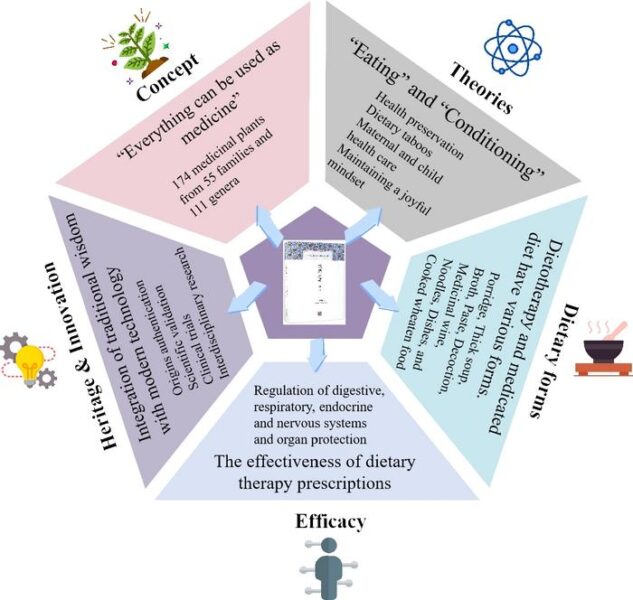A 14th-century Chinese nutritional treatise is getting a fresh look from researchers who believe its principles could help address modern health issues. The text, Yinshan Zhengyao, offers insights into using food as medicine, a concept that’s gaining renewed interest in today’s overfed yet undernourished societies.
Researchers from Baotou Medical College and other institutions have published their analysis in Food and Medicine Homology, exploring how this ancient wisdom can be applied to contemporary health challenges.
Blending Ancient Wisdom with Modern Science
Yinshan Zhengyao, compiled by Yuan dynasty dietitian Hu Sihui, is considered the world’s first authoritative nutritional treatise. It details 174 medicinal plants from 55 plant families, forming a cornerstone of traditional Chinese medicine (TCM).
“Yinshan Zhengyao is the world’s first authoritative nutritional treatise, compiled by Hu Sihui, a dietitian of the Yuan dynasty. This work embodies the traditional Chinese medicinal concept of ‘homology of food and medicine,’ rich in the cultural heritage of the Chinese nation,” said Min-Hui Li, a researcher and author of the study.
The text emphasizes not just physical health but also mental well-being, recognizing the profound impact of mood on overall health. It suggests specific dietary therapies for various bodily systems.
“In Yinshan Zhengyao, dietary therapies are particularly interesting for their effects on regulating digestion, respiration, endocrine, and nervous system functions, as well as protecting and regulating various organs,” Li explained.
Bridging Traditional Wisdom and Modern Medicine
The researchers propose integrating this ancient knowledge with modern scientific understanding. By combining insights from Yinshan Zhengyao with current knowledge of genetics, metabolism, and regulatory networks, they aim to develop more comprehensive approaches to health and nutrition.
TCM views diseases as stemming from bodily imbalances. For instance, it links kidney health not just to the urinary system but also to fluid balance, endocrine function, and even issues like lower back pain. This holistic approach aligns with modern discoveries about the interconnectedness of bodily systems.
The study suggests that by viewing food as medicine, people can put greater care into their diet, seeing it not just as fuel but as a source of longevity and health. This perspective could be particularly valuable in addressing the health issues arising from modern diets that often prioritize convenience over nutrition.
As research continues, the team hopes to further explore how this ancient wisdom can be applied in conjunction with modern medical practices. Their goal is to enhance human health by bringing the concept of food as medicine into a larger, more contemporary context.
This research, supported by various Chinese scientific institutions, represents a promising step towards integrating traditional knowledge with modern healthcare approaches. It offers a potential path to address the complex health challenges of our time by returning to the fundamental principle of nourishing the body through thoughtful, intentional eating.


